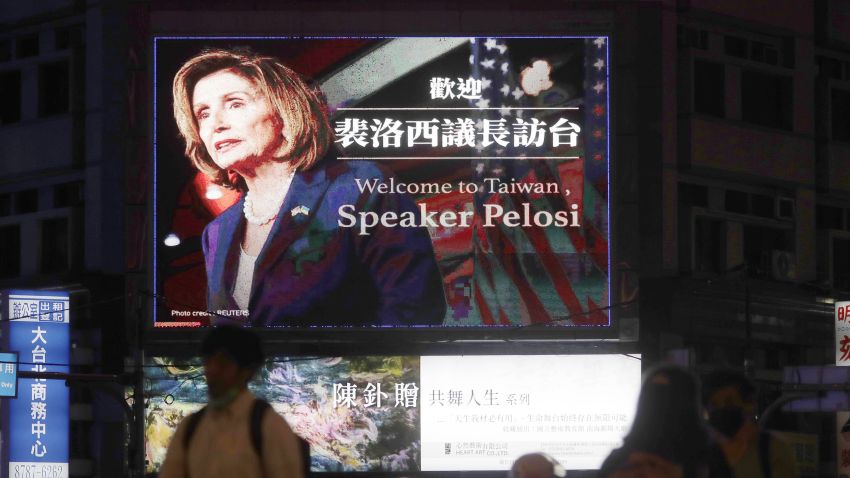In the aftermath of U.S. House Speaker Nancy Pelosi’s visit this week to Taiwan, Beijing has applied an expanded political, military and economic coercion toolkit to punish Taipei for what it considers to be a breach of the status quo governing Washington’s relations with Beijing and Taipei, but which Pelosi, the other members of Congress on the trip and their hosts in Taipei see as the normal conduct of international affairs. Beijing’s response has been unprecedented and swift, covering a wide array of areas. While the initial reaction to the visit has included Beijing’s typical military response to perceived infringements of the status quo—sending military aircraft into Taiwan’s air defense identification zone, or ADIZ—new, more aggressive measures have been implemented as well.
After weeks of explicit threats warning Pelosi not to “play with fire” by landing in Taiwan, the Chinese government has initiated a series of punishments now that she has left the island, including announcing multi-day, joint air-naval live-fire military exercises surrounding Taiwan; flying drones over Kinmen, one of Taiwan’s outlying islands off the coast of China; halting plans to announce the opening of a Tesla battery plant in North America; banning the import of over 100 Taiwanese goods and products, such as produce, fish and other foods; suspending the export to Taiwan of natural sand, used for semiconductor manufacturing; conducting distributed denial-of-service attacks on Taiwanese government websites; arresting Taiwanese activist Yang Chih-yuan in Zhejiang province; and shutting down Taiwan’s access to Sina Taiwan, a Chinese Twitter-like service.
Prior to Pelosi’s visit to Taiwan, Beijing had applied economic measures, particularly banning imports of certain Taiwanese goods like pineapples and wax apples, over the past year to pressure or punish the administration of Taiwanese President Tsai Ing-wen. That followed years of trying to isolate Taiwan diplomatically, due to Tsai’s more vocal defense of Taiwan’s sovereignty and refusal to explicitly endorse the so-called 1992 consensus, by which both sides recognize the existence of only one Chinese state, but without specifying which government represents it, creating different interpretations of its meaning. Washington’s One China policy similarly acknowledges the existence of a single Chinese state of which Beijing is the legal representative, without acknowledging Beijing’s claim of sovereignty over Taiwan.

